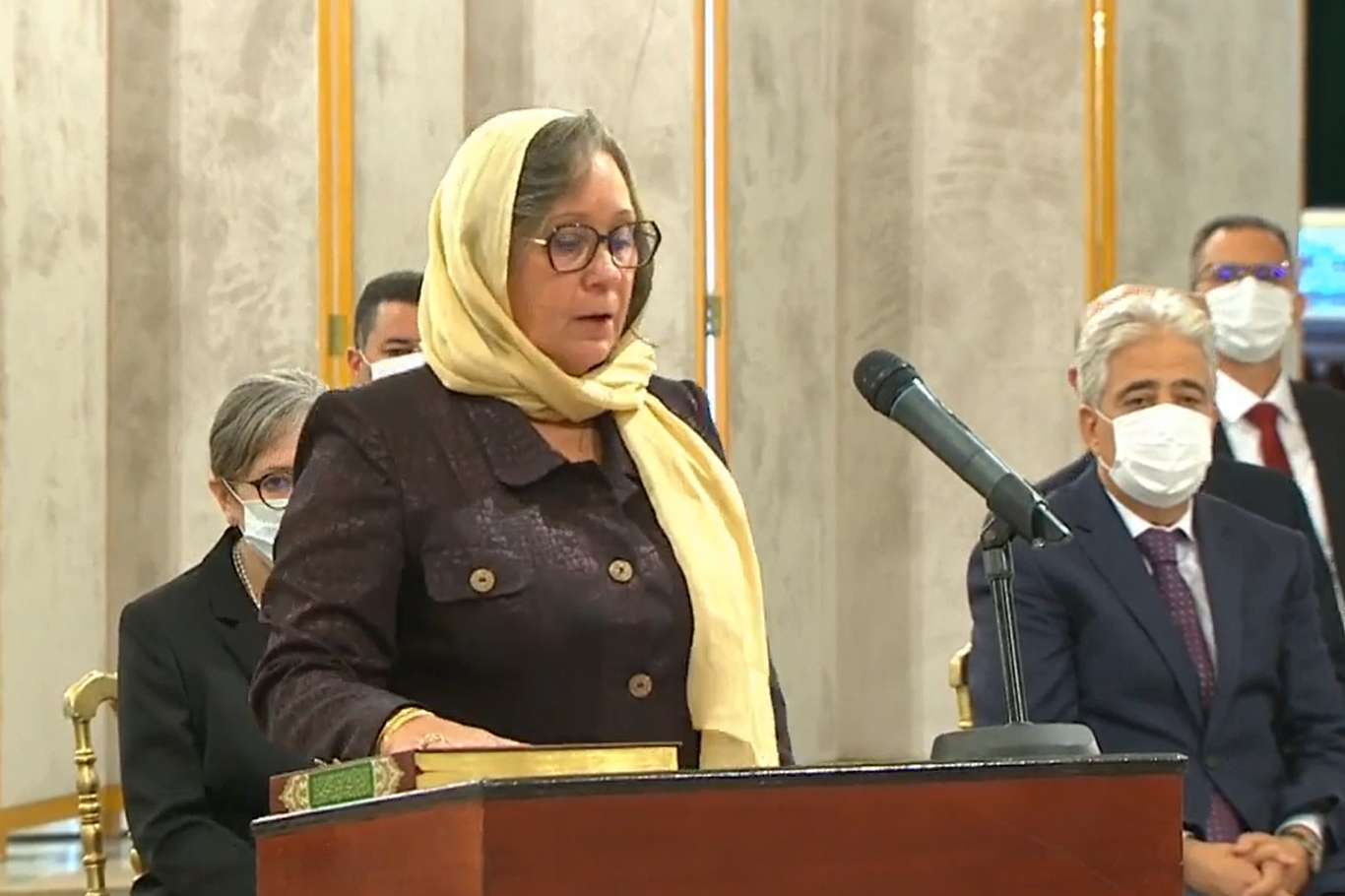Tunisian president approves new government selected by Najla Bouden Romdhane


Tunisia’s president, Kais Saied, who ousted the prime minister and suspended parliament on July 25 has appointed a new government by decree.
“The President of the Republic, Kais Saied, has issued a presidential order naming the Prime Minister and its members,” the Tunisian presidency announced in a statement on Monday.
“The government’s main priority will be tackling corruption,” said Prime Minister Najla Bouden Romdhane at the swearing-in ceremony
President Kais Saied said that he was confident Tunisia would move from frustration to hope.
On September 29, President Kais Saied asked Bouden to form and lead a government quickly, the first time in the country's history that a woman reached the office of prime minister.
At their meeting at the presidential palace, which was broadcast by the president's office, Saied described the news as “an honor to Tunisia and Tunisian women”.
Najla Bouden Romdhane, a geologist and university professor, previously served in the education ministry in 2011. (ILKHA)
LEGAL WARNING: All rights of the published news, photos and videos are reserved by İlke Haber Ajansı Basın Yayın San. Trade A.Ş. Under no circumstances can all or part of the news, photos and videos be used without a written contract or subscription.
A drone attack targeting a United Nations logistics base in Kadugli, the capital of Sudan’s South Kordofan state, killed six UN peacekeepers and injured eight others on Saturday, UN officials confirmed.
The Israeli occupation army continues to violate the ceasefire agreement in the Gaza Strip, as renewed airstrikes, artillery shelling, and naval fire were reported in multiple areas, according to local sources.
The European Union has formally agreed to introduce a fixed €3 customs duty per item on low-value e-commerce imports from non-EU countries, marking a major shift in the bloc’s approach to small parcels entering the Single Market.
Authorities said a wide-ranging manhunt is under way following a mass shooting at Brown University in Providence, Rhode Island, that killed two students and injured nine others during an exam session on Saturday afternoon.